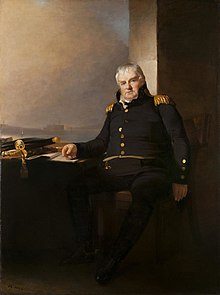“Great wonderment made at the New England Coffee house”
On 8 Nov 1774, Capt. Nathaniel Byfield Lyde of the Boston Packet left Josiah Quincy, Jr., “at Falmouth in the county of Cornwall” before sailing on to London.
Quincy made his way to the imperial capital over land, seeing the Plymouth Dockyard, Exeter, Salisbury, “the famous Roman or Druid Temple at Stonehenge,” and at least three peers’ lordly seats. He arrived in the imperial capital on the morning of 17 November.
Word of Quincy’s arrival got around quickly. He wrote in his journal that day that the Boston merchant Thomas Bromfield, a relative of his wife, reported “there was great wonderment made at the New England Coffee house about what brought me to London.” One man even said, “he has been blowing up the seeds of sedition in America and had now come to do the same here.”
Quincy told Bromfield to reply “that if I had done nothing but blow up seeds they would probably be very harmless, as they would never take root, but if I should have to sow any here and they should afterwards ripen, he or the ministry might blow them about at their leisure.”
Other visitors that first day were Edward Dilly, the London bookseller who published Catharine Macaulay, and Jonathan Williams (1750–1815, shown above), who had secured an easy job as “Inspector of the Customs in the Massachusetts Bay” but sided with the American Whigs. Later Quincy went to tea at the home of Williams’s great-uncle, Benjamin Franklin.
The next dayWilliams Williams’s uncle, Customs Inspector-General John Williams, visited Quincy again for a long private talk. He reported:
That day Quincy dined at Franklin’s house with Jonathan Williams and Dr. Edward Bancroft. (During the war, Bancroft would serve the first U.S. diplomats in France as a secretary and, simultaneously, the Crown as a spy.) Franklin echoed what his great-nephew had said about Hutchinson.
In the evening, Quincy went to the Covent Garden Theater, a novel experience for a man raised in Massachusetts. He wrote:
TOMORROW: Through Hutchinson’s eyes.
Quincy made his way to the imperial capital over land, seeing the Plymouth Dockyard, Exeter, Salisbury, “the famous Roman or Druid Temple at Stonehenge,” and at least three peers’ lordly seats. He arrived in the imperial capital on the morning of 17 November.
Word of Quincy’s arrival got around quickly. He wrote in his journal that day that the Boston merchant Thomas Bromfield, a relative of his wife, reported “there was great wonderment made at the New England Coffee house about what brought me to London.” One man even said, “he has been blowing up the seeds of sedition in America and had now come to do the same here.”
Quincy told Bromfield to reply “that if I had done nothing but blow up seeds they would probably be very harmless, as they would never take root, but if I should have to sow any here and they should afterwards ripen, he or the ministry might blow them about at their leisure.”
Other visitors that first day were Edward Dilly, the London bookseller who published Catharine Macaulay, and Jonathan Williams (1750–1815, shown above)
The next day
Governor [Thomas] Hutchinson had repeatedly assured the Ministry, that a union of the Colonies was utterly impracticable: that the people were greatly divided among themselves in every colony, and that there could be no doubt, that all America would submit, and that they must, and moreover would, soon. . . . Governor Hutchinson had more than once said the same to persons in the Ministry in his presence.Inspector Williams wanted Quincy to meet with Lord North, the prime minister, and the Earl of Dartmouth, the Secretary of State for North America. Quincy signaled that he was ready if those officials wanted to meet with him.
That day Quincy dined at Franklin’s house with Jonathan Williams and Dr. Edward Bancroft. (During the war, Bancroft would serve the first U.S. diplomats in France as a secretary and, simultaneously, the Crown as a spy.) Franklin echoed what his great-nephew had said about Hutchinson.
In the evening, Quincy went to the Covent Garden Theater, a novel experience for a man raised in Massachusetts. He wrote:
the actresses in several striking elegances of Gesture, voice and action, convinced [me] that women equal men [in] the powers of Eloquence. I am still further satisfied in my opinion, that the Stage is the nursery of vice, and disseminates the seeds of vice far and wide—with an amazing and banefull success.Meanwhile, royal officials were discussing this visitor from Massachusetts.
TOMORROW: Through Hutchinson’s eyes.


No comments:
Post a Comment